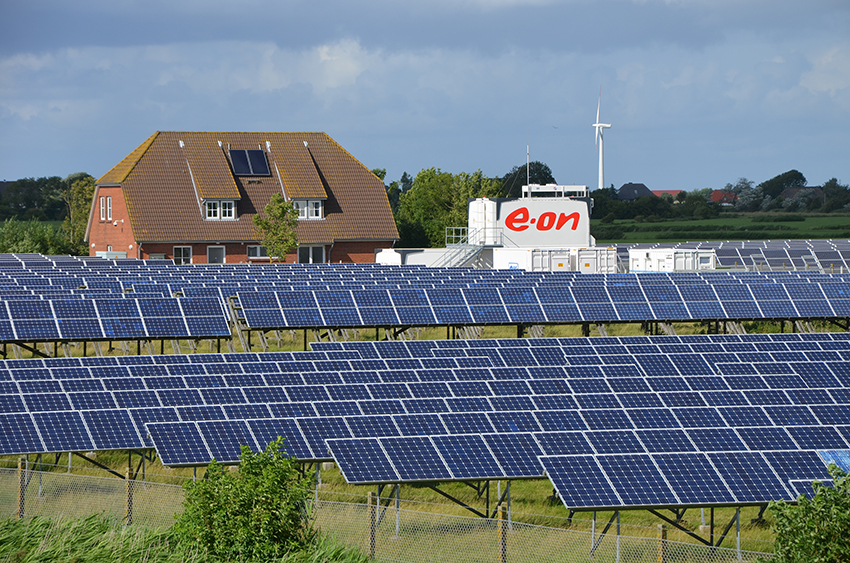E.On has reported strong performance from its renewables and networks divisions, but cited “unrelentingly fierce competition” in European supply markets for sliding returns from its solutions arm.
Earlier this week the German energy giant unveiled its 2018 financial year performance, placing adjust earnings before interest and tax (EBIT) of €3 billion (£2.56 billion), roughly €85 million (£72.6 million) less than its 2017 figure.
That performance was towards the upper end of the company’s forecasts, and CFO Marc Spieker described 2018 as a strong year characterised by an “outstanding operating and financial performance”.
This was felt particularly within E.On’s renewables and networks divisions. Earnings from E.On’s renewables segment increased 15% year-on-year to €521 million (£444 million), despite poor wind yields, on the back of new offshore wind capacity.
Those figures may however be bittersweet for E.On considering its pending deal with RWE which will see its renewables business exchange hands. RWE is to take on the renewables segment of E.On with most of RWE unit innogy going the other way in a deal which RWE said was entering the home straight earlier this week.
Spieker said the performance of the renewables unit demonstrated its employees’ “undiminished motivation” despite the upcoming transfer, and chief exec Johannes Teyssen described the performance as a “huge achievement” only possible due to its “outstanding employees”.
E.On’s networks business meanwhile recorded a 9% slide in earnings, which E.On attributed to a one-off regulatory item and the sale of Hamburg Netz which occurred in the previous year.
But the firm has been on a significant investment drive in this field and ploughed some €800 million – a figure “substantially above” 2017 levels – in a bid to expand, digitise and upgrade its power grids, especially those in Germany.
“Our networks are the backbone of the energy transformation. They connect a growing number of distributed generating units and are thus what makes a modern, climate-friendly energy world possible. By investing in further expansion and digital technology we want to make our networks robust enough to meet future challenges,” Teyssen said.
But the same could not be said for E.On’s customer solutions unit, which witnessed adjusted earnings fall by nearly 14% year-on-year, a performance which E.On attributed predominantly to challenging market conditions in the UK.
While E.On increased its customer base in nearly all of its markets, despite “unrelentingly fierce competition”, as the company described it, E.On’s UK-facing supply arm lost around 200,000 customers over the course of 2018, taking it down to 6.6 million.





